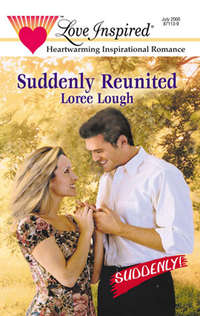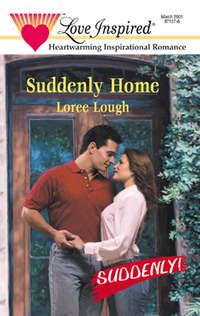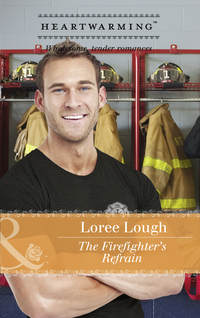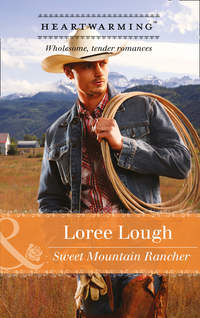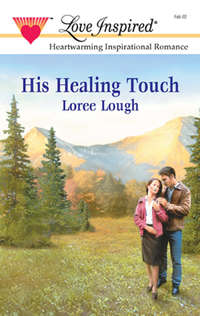
Полная версия
Suddenly Married
Dara walked to the supply cabinet and swung open the doors. “That’s right!” She stood in front of shelves that housed colorful stacks of construction paper, bluntedged scissors, bottles of glue and boxes of crayons. “But it can also mean doing good things.”
“Like what?” Marie asked.
“Like helping people finish chores so they can get outside and play sooner, or sharing the last slice of chocolate cake.” Wiggling her eyebrows, she winked and gestured toward the cupboard. “Or making greeting cards that will let Mrs. King know how happy we are that she and Mr. King finally got that baby they’ve been praying for.”
Giggling and squealing with glee, the first and second graders grabbed materials from the cupboard and began working on their cards.
“How do you spell congratulations?” Tina wanted to know.
Dara was about to print the word on the chalkboard when Bobby Lucas said, “C-o-n-g-r-a-t-u-l-a-t-i-o-n-s.”
“Not so fast,” Pete complained.
How many first graders could even read the word? Dara wondered as Bobby spelled it again. It was beginning to look like Noah Lucas had the discipline part of fathering down pat. But what about the loving part? she asked herself.
“Thanks, Bob-oh,” Pete said, grinning. “How’d you get so smart?”
Dara thought she saw the hint of a smile tug at the comers of Bobby’s mouth when he shrugged.
“His name isn’t Bob-oh,” Angie corrected. “It’s Bobby, which is short for Robert.”
“You mean robber,” Pete stuck in. “Your brother stole my pencil.”
“Didn’t steal it,” Bobby defended. “I only borrowed it” He handed it back to Pete, then crossed both arms over his chest.
“‘Thou shalt not steal,’” Pete teased, wagging a chubby finger at his classmate.
The statement made Dara think of her father. Heart pounding, she looked around the class, saw that Angie was looking directly at her. For an instant, Dara wondered if the little girl had read her thoughts, for her understanding expression seemed far too old and wise for one so young. But she said, “My mother called him Bobby, right up to the day she died.”
Dara wanted to wrap her in a hug—something she suspected her father didn’t do nearly often enough—but Angie had already turned her attention back to the artwork. She glanced at Angie’s younger brother, who shrugged again and in an equally matter-of-fact voice announced, “Don’t pay any attention to her. She says things like that all the time.” He raised one blond brow, looking amazingly like his father when he did. “Father says she does it to shock people.”
Father says? Dara forced a laugh and ruffled Bobby’s honey-blond hair. “Well,” she whispered, “it works. I’m shocked!”
One corner of his mouth lifted in a wry grin. “Pete’s right.”
“About what?”
The smile that lit his face was contagious, and for a moment, she almost forgot there were a dozen other children around her.
“You’re very pretty.”
Angie, who had been hunched over Mrs. King’s card, sat up straight and gave Dara a once-over. “Yes, yes,” she agreed. “You are rather pretty.” Furrowing her brow, she added, “Are you married?”
The enrollment forms clearly stated that Bobby Lucas was six years old and Angie was seven. Because they’d been born in the same calendar year—Angie in January, Bobby in December—the children had been in the same grade since preschool. But surely there had been a clerical error, Dara thought, a typo on their registration forms, because neither child behaved even remotely like first graders.
“Father says ladies can sometimes be sensitive to that question. Since you didn’t answer, it must mean you aren’t married.” Angie tilted her head slightly, as if considering all the possibilities. “Have you ever been married? I mean, you’re not divorced or anything, are you, because Father says divorce is a sin.”
Why would his children even be asking such a thing, let alone asking it frequently enough to require adult discussion on the subject? Dara could answer Angie’s questions—questions that would not have seemed overly personal or inappropriate if they hadn’t been asked in that eerily controlled voice—or she could divert the child’s attention. Her father may choose to speak to her like a miniature adult, Dara thought, frowning slightly, but here in my classroom, she’ll be treated like a seven-year-old!
“The card you’re making for Mrs. King is lovely,” she said in an upbeat, friendly voice. “I especially like the pretty house you’ve drawn there.”
“It’s like the one we lived in up in Pennsylvania, when my mother was alive.” She tucked in one comer of her mouth. “It was a very nice house.”
Angie took a deep breath, then said, “It happened when I was four.” She put the red crayon she’d been using back into the box, and withdrew a blue one. “It was cancer, you know, the kind that eats your blood.”
“Leukemia,” Bobby said. But unlike his sister’s nonchalant tone, the boy’s voice trembled slightly.
“Yes. Leukemia,” Angie agreed. “Father says we should try not to think about it, but when we do, we should never be sad because Mother is with Jesus in heaven, where she’ll never hurt ever again.”
It had been nearly a decade since Dara had taken the psychology courses that helped round out her education major, but Dara recognized repression when she saw—and heard—it. And though she’d been a full-grown adult when her own mother died two years earlier and lost her father just months ago, she understood the importance of mourning openly and honestly. Dara didn’t know how or why a loving father would talk his children out of grieving for their mother.
And she understood it on a completely different level: hadn’t she repressed her fears that her father might have stolen Pinnacle’s money?
She wouldn’t even suspect it, if it hadn’t been for Noah Lucas! It wasn’t hard to believe he could do such a coldhearted thing. Dara’s eyes and lips narrowed with anger toward the man who, without ever having met her father, had chosen to believe the row of numbers that said Jake was a thief rather than the daughter who believed in his innocence. That same harsh and judgmental behavior had his own flesh and blood moving through life like windup toys.
Dara had prayed before class began that the Lord would show her what to do, tell her what to say, to help her teach these children His word. These two, especially, needed to hear about His loving mercy now.
Dara slid an arm around the girl’s shoulders. “Oh, sweetie,” she said, leaning her forehead against Angie’s, “of course your mommy is in heaven with God and all His angels.” She pressed a soft kiss to the child’s temple. “But it’s okay to miss her sometimes.…”
Angie looked up from her picture and stared deep into Dara’s eyes. For a second there, Angie was every bit a seven-year-old girl as her lower lip trembled slightly and a flicker of sadness gleamed in her big dark eyes. Dara felt the fragile shoulders relax, as though a heavy burden had been lifted from them.
But then Angie blinked.
And just that fast, the frosty restraint was back, and she became a pint-size version of a full-grown adult again. It was more than a little frightening to have witnessed the transformation, and Dara shivered involuntarily, because she doubted if she could name one adult who was so self-contained.
Well, that wasn’t true. She could name one.…
“Can I get a drink of water?” Tina asked.
“Sure,” Dara said, smiling gently.
“Would you like to see the card I made for Mrs. King?” Pete wanted to know. “I drew baby Sarah on it.”
“I’ll be right there.” Reluctantly, Dara drew away from Angie. If the child noticed, she gave no clue. God bless her, Dara prayed.
Something told her that in the months ahead, she’d be petitioning the Lord often on behalf of the Lucas children.
“Sorry, Dara,” the principal said. “I’ve pulled every string I could get my fat little fingers on. There’s just no money left in the budget for you.”
Budget cuts, or had someone on the board heard that her father had been accused of embezzlement and decided it wasn’t good press to have a teacher like that working for the Howard County school system?
She took a deep breath. Stop assuming the worst, Dara, she scolded herself. It’s your own fault, after all, for asking to be assigned a job in your own district. If she’d taken the teaching job at Wilde Lake instead of Centennial High, she wouldn’t be low man on the totem pole now.
“It isn’t your fault, John,” she said, smiling halfheartedly.
“Who’d-a thunk seniority could be an ugly thing?”
“Better watch it,” she warned, wagging a finger under his nose. “If the kids hear you breaking the rules of grammar that way, they’ll—”
“They’ll what?” he teased. “Most of ‘em have been abusing the King’s English since right after they learned to say ‘Dada’!”
Dara and her boss laughed for a moment, until the seriousness of the situation shrouded his cramped, crowded office.
“So when do I have to clear out my desk?”
Wincing, the principal sighed. “Not till the semester ends in February. That’ll give you plenty of time to send your résumé around.”
It gave her four months, give or take a week. Dara sighed, staring out the window, where Old Glory popped and snapped in the brisk winter wind. She’d sat right here as a Centennial student when she’d served as an office aide to Mr. John Westfall, and again nearly nine years ago when he’d interviewed her to fill the open math teacher slot. There were other teaching positions available here in Howard County, and more than likely, she’d accept one. But it wouldn’t be the same, because those schools wouldn’t feel like home.
“Should I put in a good word for you over at River Hill?” Westfall asked, standing. “I hear there’s going to be an opening there.”
“Sure,” Dara said, getting to her feet. “That’d be great.”
“I hate to lose you, Dara. And so will the kids.”
He extended his hand; she clasped it gratefully.
“It’s gonna be like sending one of my own daughters off into—”
“Hush,” she said, smiling sadly, “or you’re going to make me cry.”
“Don’t want to start up any waterworks, now do we?”
Dara focused on their hands. He’d been jerking her arm up and down like a pump handle. “I’ve heard of trying to get blood from a turnip,” she teased, “but I don’t think this is the way you go about it.”
Chuckling, Westfall let go of her hand, gave her shoulder a gentle squeeze. “If there’s anything I can do,” he said softly, “anything, you just ask, you hear?”
“Thanks,” she said, heading for the door. “I will.”
“You’ll come see me once in a while, won’t you? Let me know how you’re doing?”
Another nod, one hand on the doorknob. “Now, let me leave before I start blubbering all over this gorgeous green-and-orange carpet of yours!”
She closed his office door. Could things get any worse? she wondered. The second anniversary of her mother’s death was just around the corner; in a week, her father would have been gone six months. Then there was the news about his so-called embezzlement. And now she was out of a job. If you had any sense, she said to herself, you’d make reservations and take that cruise you’ve been saving up for.
Immediately, she shook her head. No telling what Noah Lucas might do on Kurt Turner’s behalf while you’re off in the sunny Caribbean worrying yourself silly.
The janitor flung open the door, rolled his oversize metal trash can inside. As he banged and clanged down the hall, a huge gust of wind whipped in behind him, blowing the papers from Dara’s hands and scattering them across the floor. Some fluttered out the door; others skidded under lockers. “That cruise is gone with the wind, too,” she muttered as she gathered the papers that hadn’t escaped.
Look at the bright side, she told herself. Now you have two projects to distract you from the Pinnacle mess—Sunday school and job hunting!
As she headed for her cubicle in the teachers’ lounge, something told her neither would be a very good diversion.…
* * *
The weather bureau was predicting snow. Lots of it. But it wasn’t supposed to start until late afternoon, which meant Sunday services and Dara’s class would take place as scheduled. If TV meteorologist Norm Lewis was right, there’d be no school tomorrow, and if her students had heard his report, they’d be too busy looking out the windows to learn much of anything this morning.
It was a good chance to put Naomi King’s advice to the test: “You can’t teach the little ones with ordinary lessons. If you follow the teacher’s manual, they’ll be bored and restless.” The art project had worked quite well last week. Why not incorporate more of the same into this Sunday’s lesson?
She’d purchased five jars of peanut butter, a bottle of vanilla, ten boxes of confectioners’ sugar, two rolls of waxed paper, a monumental stack of foam bowls, three rolls of paper towels and a huge can of crushed peanuts at the grocery store yesterday. Dara could hear in their puzzled voices that she’d piqued her students’ curiosity when she called each last evening and asked that they bring one of their fathers’ old shirts to class, but it was nothing compared with the inquisitive looks on their faces when they marched into the room and saw the supplies, standing in a tidy row on her desk.
“I’ll answer all your questions as soon as we’ve said our opening prayer,” she promised. “Who’d like to do the honor?”
At first, Dara thought she might have to do it herself, as she had last week. Then one tiny hand slid hesitantly into the air.
“Thank you for volunteering, Bobby,” she told him. “Now, let’s all close our eyes and bow our heads.”
The children immediately complied.
“Go ahead, Bobby.”
“Dear Lord,” he began in a sweet, angelic voice, “we thank You for getting us here safely. God bless Miss Mackenzie for being our teacher…” He hesitated for a moment before concluding. “And for bringing all the ingredients to make peanut butter balls. Amen.”
“Peanut butter balls. What’re peanut butter balls?”
The question echoed around the room a dozen times before Angie said, “They’re a no-bake dessert that’s very high in fat and—”
“But they’re fun to make and dee-licious!” Bobby tacked on.
“How do you know ‘bout peanut butter balls?” Pete asked.
“Our mother taught us to make them,” was Angie’s straightforward reply.
Dara clapped her hands. “All right, class, let’s get our hands washed so we can dig in.”
In a matter of minutes, they were back in their seats, draped in their fathers’ baggy, cast-off shirts. “We’re going to learn something about creation today,” she said, going from desk to desk, rolling up sleeves. And handing each student a sheet of waxed paper, she added, “God took special ingredients, mixed them and made the world.”
As Dara gave the children their own disposable bowls, she began quoting Genesis in words these first graders would understand. To emphasize the lesson, she doled out peanut butter and sugar, a drop of vanilla, and invited the kids to mix them thoroughly…with their bare hands. When they’d made dough of the mixture, she instructed them to form gumdrop-size balls from it, then instructed them to roll their peanut butter balls in the crushed nuts.
Lisa licked the mixture off her fingers. “Mmm,” she said. “That was good work.”
“And messy work,” Tina agreed.
“But now we can enjoy—and share—what we’ve made,” Dara told them.
“Oh, I get it!” Pete shouted. “Like God enjoyed the world, and shared it with Adam and Eve once he got done makin’ it!”
“Once he had finished it,” Angie corrected, sighing deeply.
“Is God gonna eat the world?” Donny teased, popping a peanut butter ball into his mouth.
“‘Course not, stupid. It’s too big to fit in His mouth,” Pete said around a mouthful of his own sticky treat.
“It isn’t polite to call people ‘stupid,’” Angie scolded.
Dara had spent only two weeks with the class, but her students had spent three months with Angie. They rolled their eyes at her admonition.
Angie could pretend to be older and wiser than the rest of the kids in class, but Dara had seen her eyes light up at the prospect of digging her fingers into the gooey mess that would become the peanut butter balls. And despite her best attempts to appear above it all, her “cookies” were just as lopsided as everyone else’s.
The children left class, chattering happily—around mouthfuls of the treat they’d made with their own two hands—about what they’d do once the snow started. Dara went about the business of cleaning up what Donny had referred to as “Our Genesis Mess.”
Humming, she dropped sticky bowls and wrinkled sheets of waxed paper into the wastebasket, then began packing up the leftover ingredients and paper products. Dara had but one regret about teaching this class: not one of the students was her son or daughter. She loved everything about children—from cradle to cap and gown—their effervescent exuberance to their brighteyed view of the world was contagious. Someday, she hoped, the Lord would see fit to answer her prayer and send a good Christian man into her life.
One like Dad, she thought, gritting her teeth with grim determination. She would prove he hadn’t committed that awful crime if it was the last thing she ever did!
He’d earned her faith in him, her loyalty, because he’d been a wonderful father, a wonderful husband! Dara recalled how well he’d always taken care of her mother, how much more devoted and compassionate he became when she got sick. Dara wanted a love like that, a man like that, with whom she could build a home, a family, a future—
“May I have a word with you, Miss Mackenzie?”
The suddenness of the deep baritone startled her, and Dara dropped the paper bag she’d been holding.
“Sorry,” he said, a crooked smile slanting his tawny mustache, “didn’t mean to frighten you.”
She stooped to retrieve the paper towels and foam bowls that had rolled under her desk. “No problem. I just didn’t see you there, that’s all.” Dara jammed the articles back into the bag, stood it near the door. “Now then,” she said, dusting her hands in front of her, “what can I do for you, Mr. Lucas?”
He didn’t answer right away, a fact that gave Dara an overall uneasy feeling. She was about to ask what he was looking at when he said, “I’d like to thank you.”
“Thank me?” His intense scrutiny had unnerved her, and a jittery giggle popped from her lips. “Whatever for?”
“For attempting to comfort my daughter last week. Bobby told me what you said…and did.”
Dara frowned, trying to remember specifically what he might be referring to. The hug? That little peck on the temple? She shrugged. “I’m afraid I don’t—”
“I’m the one who’s afraid, Miss Mackenzie,” he interrupted. “Since my wife passed away, the children haven’t had much in the way of female nurturing. I try,” he added, shoulders up and palms extended, “but I make a better dad than a mom.”
Dara took note of his broad shoulders, his muscular legs, the big fingers that repeatedly combed through his shining blond hair. I’ll say, she thought, grinning inwardly. “Well, no one expects you to be a superhero,” she said, “least of all, Bobby and Angie.”
“Maybe not,” he said in a quiet voice, “but they deserve the best, and I’m a far cry from it.”
This was a side of Noah Lucas that Dara never would have guessed existed.
“I just wanted to thank you is all, for your kindness.”
Coming from anyone else, the words would have been taken at face value, and she would have said, “Just doin’ my job.” But from a man like Noah Lucas—reserved, private, stoic—they took on a whole new meaning, because Dara had a feeling he didn’t make a practice of saying such things.
“You can be very proud of Bobby and Angie,” she admitted. “They are two of the best-behaved children I’ve ever met” Grinning, she held a finger in the air to add, “And I’ll have you know this isn’t my first encounter with children.”
“So I’ve heard.”
So he had checked her out! The question was, had he done it because of the funny-money business down at Pinnacle? Or because she’d be spending an hour each week with his precious children? It had to be one or the other, because it was a sure bet he wasn’t interested in her as a woman, Dara thought. More than likely, he believed that adage that the acorn didn’t fall far from the tree, and intended to keep a very close eye on her for the duration of the Sunday-school class.
People are not what they appear to be.
If her father had said it once, he’d said it a hundred times. Where Noah Lucas was concerned, the statement seemed more prophetic than ever.
Had she misjudged him when she’d jumped to the conclusion that he was cold and heartless? Had she been wrong when she’d assumed Bobby and Angie behaved the way they did because he encouraged it?
“What was that, ah, that stuff they were eating when they walked out of here?” he asked, interrupting her reverie.
“Peanut butter balls.”
“You taught them to make—”
She gave a proud nod. “Yup.”
“How did you know it was safe?”
Dara tucked in one corner of her mouth. “Safe?”
“When I was a boy, I knew a girl who was allergic to peanuts. One whiff of anything made from them and she’d go into anaphylactic shock. More than once, she was carted off to the hospital in an ambulance, fighting for her life.” He raised a brow. “I admire the extra effort it took on your part to ensure none of your students would have such a reaction.”
Was he…was he smirking?
Well, that sure isn’t a smile on his face!
Noah Lucas had her dead to rights, and he knew it. She had made no such “check” to find out if any of the children might be allergic to peanuts, and the shame of it made her cheeks hot. It had been only by the grace of God that none of her first graders was allergic to peanuts. Later, she’d say a heartfelt prayer of thanks for the Almighty’s protection. Right now, all Dara wanted to do was get rid of Noah Lucas.
She’d been right about him after all. He was a smug, patronizing know-it-all. And more than likely, he had been responsible for the way his children behaved. “If there’s nothing else, Mr. Lucas,” she said, clipping her words, “I have…I have a very busy day ahead of me.”
“Of course. Forgive me. It was never my intention to make you late for—” the smirk became a grin “—for your very busy day.”
Somehow, he knew full well that she had no plans for the rest of the day. But how could he have known? Because he’s researched you, that’s how, she reminded herself. She could hardly blame him; Dara had probed into his background, too. Straightening her back, she tilted her head. “‘Know thine enemy,’ eh, Mr. Lucas?”
That seemed to wipe the pompous look from his face!
“I’m sorry?”
Dara had no idea why the confusion that suddenly wrinkled his brow would make her feel the need to comfort and console him. But it did. Sighing with vexation, she put her back to him, pretending to be busy gathering her teacher’s manual, her purse.
Lucas relieved her of the coat, held it out and waited for her to shrug into it. Funny, she thought, but I don’t remember it feeling this heavy befo—Then she realized it had been his hands, resting on her shoulders, that had caused the added weight. Dara wondered how the touch of a man who had riled her temper in her father’s office, who had further fueled her fury by pointing out that her inattentiveness might well have endangered an innocent child, would feel so comforting, so reassuring, so right.
Because, she decided, turning suddenly to face him, you’re losing your mind. Nothing short of insanity, she believed, could explain why such a feeling would come over her.
“Angie and Bobby are waiting in the hall.”
She raised a brow, as if to say, “What does that have to do with me?”


